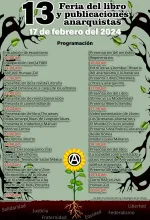From CounterPunch
We have allowed the American ruling class to abstract themselves almost entirely from their substantive political positions and practices. So deeply engrossed are we in their branding as products of consumption, in their spectacular representations, that we seem to have no capacity to grapple critically with the situation we find ourselves in. The moment calls for careful reengagement with French philosopher Guy Debord’s book The Society of the Spectacle, as well as one of its most important, if unsung, precursors, German philosopher (perhaps anti-philosopher) Max Stirner’s book The Ego and Its Own. These masterworks of critical theory, separated by more than one hundred years (Debord’s book was first published in 1967, Stirner’s in 1844), offer vital tools for helping us make sense of the present moment and for consciously cultivating an “ethos of non-domination.”





